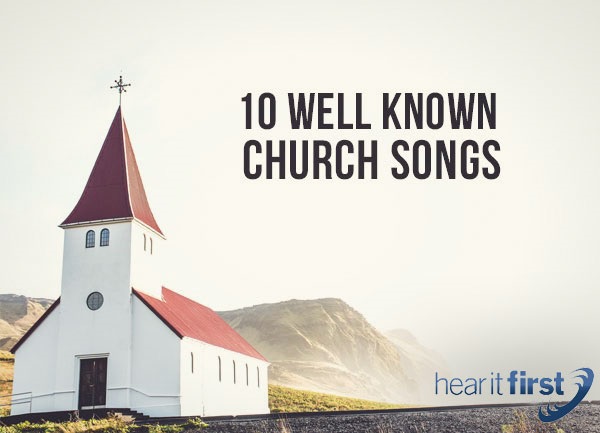- Many hymn tunes have well-known names. One well-known tune name, for example, is 'Crimond' often used (but not exclusively) for 'The Lord is my Shepherd'. For older hymns, these tunes are well established. But unfortunately, it is not as simple as that, for.
- Free organ music for congregational singing. Besides index of hymns by first line and tune name, there are also indexes of many currently used hymnbooks.
- Tunes Ehmusic For Your Church Services
- Tunes Emusic For Your Church Services Near Me
- Tunes Emusic For Your Church Services Online
- Tunes Emusic For Your Church Services Free

Republished with Permission. Originally published at: timhswanson.com.
How much time do you spend trying to plan music that speak to the beating heart of your congregation?
Go to original SmallChurchMusic site. Many hymn tunes have well-known names. One well-known tune name, for example, is 'Crimond' often used (but not exclusively) for 'The Lord is my Shepherd'. For older hymns, these tunes are well established. But unfortunately, it is not as simple as that, for. So you can now include your music along with the Pastor’s message as you webcast your church service. The Streaming license does not cover the streaming of secular songs. If your church wants to webcast performances of secular songs, you may want to a consider a webcasting license from the performance rights societies (ASCAP, BMI, SESAC). There are no copyright issues with live streaming the videos and music on this site for your church services. This is because all songs are public domain, and all performers have surrendered their copyright performance rights, thereby letting you freely stream or video this music. (This does not apply to links to other Music Websites).
That’s what I do. When I plan services at Moon Valley Bible Church, I look for music that will connect with people on a deep level. I want to bridge the gap between people’s heads and hearts. It’s about coloring in the dotted line between what they know to be true, and what moves them to act on what they know. The only problem is there are so many different kinds of people in my church that it’s nearly impossible to plan a music that will connect with everybody. A certain portion of my congregation connects really well with hymns. Others think hymns are awful, and they feel like they need something newer to connect with.
It seems to be the age old issue of the worship leader. How do you plan a worship set that will connect with the greatest possible number of people in a very diverse crowd? Some churches resign to the fact that they will never appeal to everybody, and they just look to hit one style. Some keep their choirs and orchestras alive and stick to traditional music. Others feel like it’s time to move on. They put traditional music away, and move to whatever is current.
Then there are churches who try to split the difference. They do traditional music during their early services. Then they do modern services later in the day. None of these ideas are wrong. In fact, they paint a beautiful picture of the diversity of the body of Christ. That’s one of the things I love about church music. It presents the beautiful mosaic of personality that exists within the church. Speaking to that beautiful mosaic is one of my favorite things about planning music for the services at my church.
Tunes Ehmusic For Your Church Services
When I plan music for services, I frequently look to build a diverse set that speaks to different generations, and engages the greatest possible number of people at once. If you’re anything like me, and you strive for diversity then you’ll want to be aware of the three eras of church music that are essential to speaking to the generational mosaic.
1. Hymns
These are the songs that have stood the test of time. Many of them written before our parents were born, these tunes are typically composed with the lyrical complexity needed to communicate deep theological truths. For most they bring back childhood memories, which could be good or bad. In younger churches, this era of music might be honored best with revitalized versions of these songs that use updated instrumentation and dynamics. Beware, however, of rewriting melodies to these tunes. For many people the melody to Amazing Grace is as sacred as the truth it communicates. I’m not saying it’s right, but that’s the way it is. Change the vital elements of a hymn and you might turn it from a fond memory of God’s truth into a frustrating distraction.
2. Contemporary Songs
These are anything written between 1970 and 2007…ish. These songs are special. They’re the ones that a lot of people associate with the beginning of their relationship with Jesus. For most of Generation X these are the true worship tunes. Depending on the makeup of your church body, these might be a very important part of your repertoire. I hear a lot of people say they’re overdone, but don’t throw out good songs like ‘Blessed Be Your Name’. They’re an important part of the makeup of today’s church.
3. Modern Songs
Typically these are any songs written in the last 5 years. They’re the bread and butter of the worship leader who wants to be relevant. They are important because they speak to what matters to people today. If you’ve noticed, a lot of the songs that they’re playing on your local Christian radio station are openly acknowledging people’s brokenness. They are preaching the heart of today’s generation, which is no longer content putting on a smile on Sunday and remain miserable for the rest of the week. These songs speak for the people who want real change. Use them to acknowledge what everyone is thinking.
Every church has a slightly different culture. Which means that the ideal mix of these three will be slightly different for everyone. I’ve found that at my church the right mix is generally 50% Modern, 30% Hymns and 20% Contemporary. That is the mix that best speaks to the heart beat of my church. But what is it at your church? What mix of the three main eras of music is best to speak to the great mixture of people God has entrusted to you?
***

Tim H. Swanson leads worship at Moon Valley Bible Church, and writes about worship at timhswanson.com.
Related posts:
Republished with Permission. Originally published at: timhswanson.com.

How much time do you spend trying to plan music that speak to the beating heart of your congregation?
That’s what I do. When I plan services at Moon Valley Bible Church, I look for music that will connect with people on a deep level. I want to bridge the gap between people’s heads and hearts. It’s about coloring in the dotted line between what they know to be true, and what moves them to act on what they know. The only problem is there are so many different kinds of people in my church that it’s nearly impossible to plan a music that will connect with everybody. A certain portion of my congregation connects really well with hymns. Others think hymns are awful, and they feel like they need something newer to connect with.
It seems to be the age old issue of the worship leader. How do you plan a worship set that will connect with the greatest possible number of people in a very diverse crowd? Some churches resign to the fact that they will never appeal to everybody, and they just look to hit one style. Some keep their choirs and orchestras alive and stick to traditional music. Others feel like it’s time to move on. They put traditional music away, and move to whatever is current.
Then there are churches who try to split the difference. They do traditional music during their early services. Then they do modern services later in the day. None of these ideas are wrong. In fact, they paint a beautiful picture of the diversity of the body of Christ. That’s one of the things I love about church music. It presents the beautiful mosaic of personality that exists within the church. Speaking to that beautiful mosaic is one of my favorite things about planning music for the services at my church.
When I plan music for services, I frequently look to build a diverse set that speaks to different generations, and engages the greatest possible number of people at once. If you’re anything like me, and you strive for diversity then you’ll want to be aware of the three eras of church music that are essential to speaking to the generational mosaic.
1. Hymns
These are the songs that have stood the test of time. Many of them written before our parents were born, these tunes are typically composed with the lyrical complexity needed to communicate deep theological truths. For most they bring back childhood memories, which could be good or bad. In younger churches, this era of music might be honored best with revitalized versions of these songs that use updated instrumentation and dynamics. Beware, however, of rewriting melodies to these tunes. For many people the melody to Amazing Grace is as sacred as the truth it communicates. I’m not saying it’s right, but that’s the way it is. Change the vital elements of a hymn and you might turn it from a fond memory of God’s truth into a frustrating distraction.
2. Contemporary Songs

These are anything written between 1970 and 2007…ish. These songs are special. They’re the ones that a lot of people associate with the beginning of their relationship with Jesus. For most of Generation X these are the true worship tunes. Depending on the makeup of your church body, these might be a very important part of your repertoire. I hear a lot of people say they’re overdone, but don’t throw out good songs like ‘Blessed Be Your Name’. They’re an important part of the makeup of today’s church.
Tunes Emusic For Your Church Services Near Me
3. Modern Songs
Typically these are any songs written in the last 5 years. They’re the bread and butter of the worship leader who wants to be relevant. They are important because they speak to what matters to people today. If you’ve noticed, a lot of the songs that they’re playing on your local Christian radio station are openly acknowledging people’s brokenness. They are preaching the heart of today’s generation, which is no longer content putting on a smile on Sunday and remain miserable for the rest of the week. These songs speak for the people who want real change. Use them to acknowledge what everyone is thinking.
Every church has a slightly different culture. Which means that the ideal mix of these three will be slightly different for everyone. I’ve found that at my church the right mix is generally 50% Modern, 30% Hymns and 20% Contemporary. That is the mix that best speaks to the heart beat of my church. But what is it at your church? What mix of the three main eras of music is best to speak to the great mixture of people God has entrusted to you?
***
Tunes Emusic For Your Church Services Online
Tim H. Swanson leads worship at Moon Valley Bible Church, and writes about worship at timhswanson.com.
Tunes Emusic For Your Church Services Free
Related posts:
